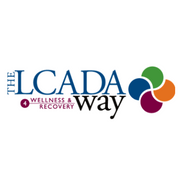
An intervention involves family members, friends, and clinicians coming together to help a person struggling with addiction. For an intervention to be successful, careful planning is essential. Denial is a common characteristic many people living with addiction share. They may not see how their addictions are hurting those they love, they may not initially want to get help, and they may not be ready to hear the reality of their behavior or its consequences. Preparing for these outcomes will increase the chances that the individual accepts the assistance being offered. Below are some crucial planning tips to bear in mind.
4 Steps for Planning an Intervention
1. Gather People & Information
Decide who will be attending the intervention. This typically includes family members, friends, and colleagues of the individual living with addiction. Bear in mind that the person with these concerns should not be a part of the planning and preparation. Once the group is assembled, assign each member a research responsibility, such as looking into how interventions work, the nature of the exact addiction your loved one is living with, and various options for treatment. Then, meet up and share the information. The more informed each member of the team is, the stronger and more cohesive a unit you will be.
2. Consult a Professional
 If you haven't already done so by this point, it's a good idea to consult alcohol and drug addiction professionals. They will work with you to design a customized plan that will best help your loved one and support the intervention team in its efforts. It's no secret that an intervention can stir up strong emotions, especially in the person living with addiction. You want the guidance and resources of an addiction professional to assist in navigating these issues and creating a loving, calm path forward.
If you haven't already done so by this point, it's a good idea to consult alcohol and drug addiction professionals. They will work with you to design a customized plan that will best help your loved one and support the intervention team in its efforts. It's no secret that an intervention can stir up strong emotions, especially in the person living with addiction. You want the guidance and resources of an addiction professional to assist in navigating these issues and creating a loving, calm path forward.
3. Choose Consequences
For an intervention to be effective, those in attendance must name specific consequences for the behavior if the person chooses not to get help. This is a critical component of any intervention, as it underscores the severity of the addiction and the commitment of loved ones. For instance, a parent who is financially supporting an adult child may choose to stop paying the child's bills if treatment is refused.
4. Make Notes
Write down the main points you want to say. Emotions will be running high during the intervention, and it's not uncommon to overlook some of the essential things you might want to say. If it's helpful, write a letter to your loved one and read it to them at the intervention. Keep it simple and straightforward, but make your feelings known.
When you need assistance planning an intervention, contact The LCADA Way. Since 1981, they have been providing addiction treatment to Lorain, Erie, Medina, and the surrounding counties in Ohio. They offer counseling and rehab services for alcohol, drug, and gambling addiction issues and are available 24/7 to ensure you find the solutions you need. Call (440) 989-4900 today or visit them online to schedule a consultation.
About the Business
Have a question? Ask the experts!
Send your question

